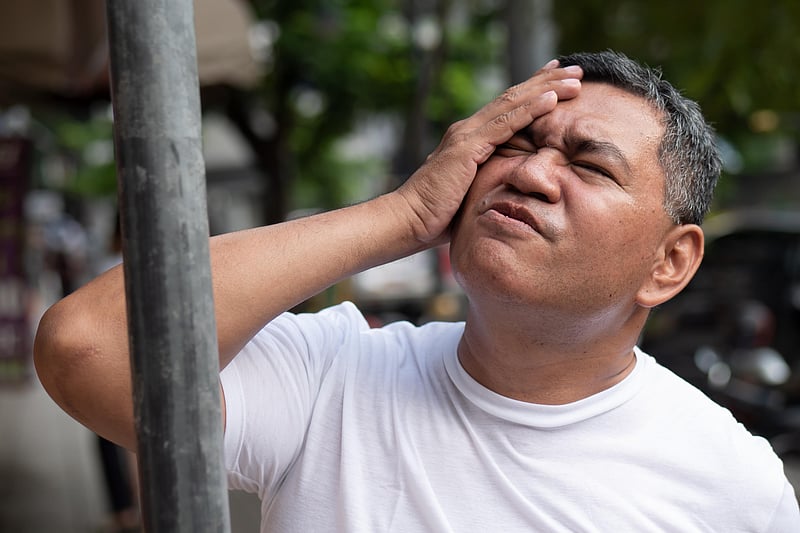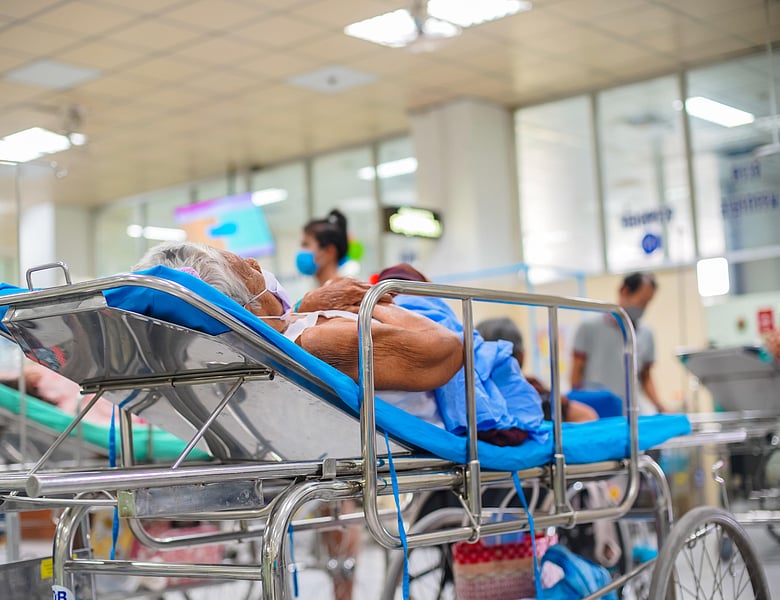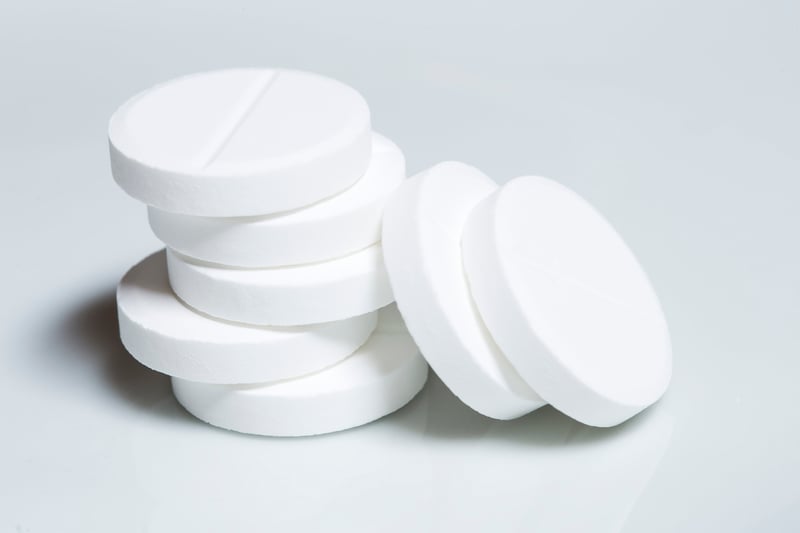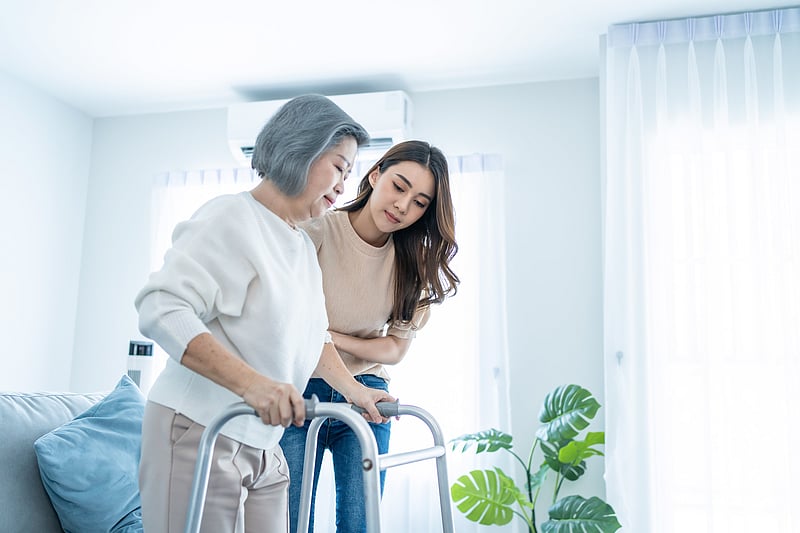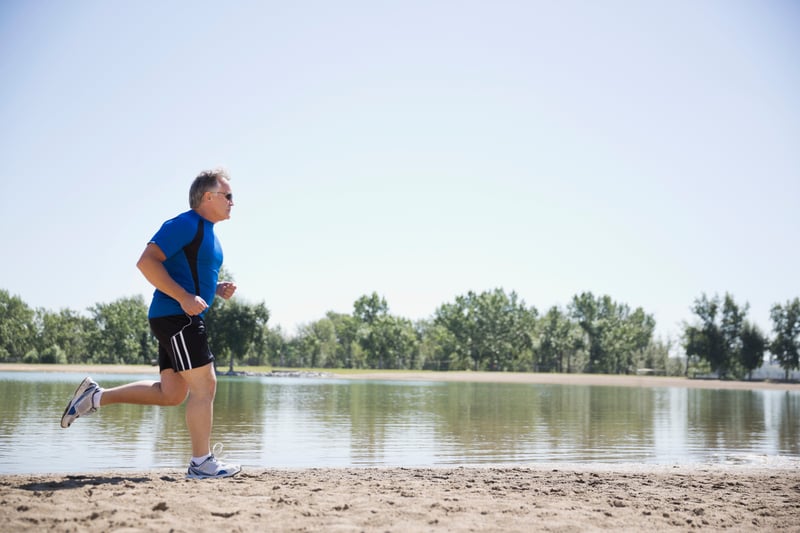155 SE 2nd Main St Hillsboro, OR 97123
Thank you for your patience!**
Now offering Flu Shots. Walk-ins available!
We also offer "Monoclonal Antibodies" treatment for patients with Covid-19.
Get Healthy!
Results for search "Heart / Stroke-Related: Stroke".
08 Jun
Insomnia May Raise Your Risk for Stroke, New Study Finds
People who have insomnia symptoms, such as trouble falling asleep and waking up in the middle of the night, may face greater odds of stroke, according to researchers.
Health News Results - 511
The dangerous heart rhythm disorder called atrial fibrillation is becoming more common in middle-aged people, a new study warns.
More than a quarter of patients at the University of Pittsburgh Medical Center (UPMC) seeking care for A-Fib during the last decade...
- Dennis Thompson HealthDay Reporter
- |
- April 22, 2024
- |
- Full Page
The dangerous heart rhythm disorder known as atrial fibrillation is mainly known for increasing people’s risk of stroke.
But people with A-Fib actually have a much higher risk of developing heart failure than suffering a stroke, a new study shows.
In f...
- Dennis Thompson HealthDay Reporter
- |
- April 19, 2024
- |
- Full Page
Managing a stroke victim’s blood sugar levels after they receive powerful clot-busting drugs might help them survive their health crisis, a new trial finds.
People with high blood sugar levels were more likely to suffer a potentially deadly brain bleed after clot-busters reopened their blocked brain arteries, researchers found.
The risk was particularly high in older patients with...
- Dennis Thompson HealthDay Reporter
- |
- April 19, 2024
- |
- Full Page
An immune-compromised man with a year-and-a-half-long COVID infection served as a breeding ground for dozens of coronavirus mutations, a new study discovered.
Worse, several of the mutations were in the COVID spike protein, indicating that the virus had attempted to evolve around current vaccines, researchers report.
“This case underscores the risk of persistent SARS-CoV-2 infecti...
- Dennis Thompson HealthDay Reporter
- |
- April 19, 2024
- |
- Full Page
Intense weather fluctuations caused by climate change could be contributing to an increase in stroke deaths, a new study claims.
Freezing cold fronts and broiling heat waves are associated with more than half a million deaths annually in recent years, researchers report April 10 in the ...
- Dennis Thompson HealthDay Reporter
- |
- April 11, 2024
- |
- Full Page
Just a little exposure to secondhand smoke may increase your risk for the heart rhythm disorder atrial fibrillation (A-Fib), a new, large study suggests.
People who have A-Fib, the world's most common heart rhythm disorder, are five times more likely to have a stroke than their healthy peers.
While passive smoking has been linked to heart disease and early death, links between...
- Carole Tanzer Miller HealthDay Reporter
- |
- April 8, 2024
- |
- Full Page
America is making headway against heart disease, with heart-related deaths declining over the past three decades.
But it appears that only the well-to-do have benefitted, a new study shows.
Heart attack rates have stayed the same or gotten worse among ...
- Dennis Thompson HealthDay Reporter
- |
- April 5, 2024
- |
- Full Page
Living in a poor and unhealthy neighborhood could nearly double a person's risk of heart disease and stroke, a new study says.
The findings indicate that all the factors that make for a crummy neighborhood -- air and water pollution, toxic sites, few parks, tons of traffic -- play a ...
- Dennis Thompson HealthDay Reporter
- |
- March 28, 2024
- |
- Full Page
Migraines in young adults appear to increase their risk of stroke more than traditional risk factors like high blood pressure, a new study reports.
Results show that migraine is the most important non-traditional risk factor for stroke among adults ages 18 to 34, accounting for 20% of strokes in men and nearly 35% in women.
Overall, non-traditional risk factors were associated with ...
- Dennis Thompson HealthDay Reporter
- |
- March 27, 2024
- |
- Full Page
The bright lights of the big city might seem exciting, but they could also raise a person's risk of stroke, a new study suggests.
Bright artificial lights that illuminate the night seem to affect blood flow to the brain in ways that make stroke more likely, researchers report.
People with the highest levels of exposure to outdoor light at night have a 43% increased risk of diseases ...
- Dennis Thompson HealthDay Reporter
- |
- March 26, 2024
- |
- Full Page
Six out of every 10 stroke survivors wind up struggling with depression later in their lives, a new study says.
That compares to the 22% depression rate of the general population, results show.
Further, 9 of 10 stroke-related depression cases occur within five years of surviving a stroke, r...
- Dennis Thompson HealthDay Reporter
- |
- March 26, 2024
- |
- Full Page
Medicare will now cover the popular weight-loss drug Wegovy if patients using it also have heart disease, U.S. officials announced Thursday.
The move comes after the U.S. Food and Drug Administration approved drugmaker Novo Nordisk's application to add
Intermittent fasting might be bad for your heart, a new study warns.
People who restricted their eating to an 8-hour window had nearly twice the risk of heart-related death compared to folks who ate freely, results show.
This runs counter to previous research in which intermittent fasting impr...
- Dennis Thompson HealthDay Reporter
- |
- March 19, 2024
- |
- Full Page
Lots of seniors are regularly taking low-dose aspirin in hopes of preventing heart attacks and strokes, even though updated guidelines often advise against it.
About one in four older adults take aspirin at least three times a week, according to results from the University of Michigan's
Even a little physical activity can cut a person's stroke risk compared to being a complete couch potato, a new review shows.
Folks whose physical activity levels fell short of recommended guidelines still had a lower risk of stroke than those who got no exercise, researchers report.
Compared with no exercise, the highest “ideal” amount of physical activity cut stroke risk by 29...
- Dennis Thompson HealthDay Reporter
- |
- March 7, 2024
- |
- Full Page
The more steps a person can fit into their day, the lower their risk of early death and heart disease, regardless of how much a couch potato they are otherwise, a new study shows.
People who are sedentary for more than 11 hours a day gain the same health benefits from walking more as more active folks do, researchers found.
The optimal number of daily steps to improve health was bet...
- Dennis Thompson HealthDay Reporter
- |
- March 6, 2024
- |
- Full Page
A new robotic hip exoskeleton could help stroke patients improve their walking stride, a new study shows.
More than 80% of stroke survivors develop problems walking, often because their step is shorter on one side than the other, researchers explained in background notes.
The hip exoskeleton helps people adapt their stride by forcing both legs to take similar strides, researchers re...
- Dennis Thompson HealthDay Reporter
- |
- March 5, 2024
- |
- Full Page
Folks who use marijuana have a greater risk of heart attack and stroke, with the odds rising even higher when they partake every day, a new study finds.
Both daily and non-daily marijuana users had an increased risk of heart attack and stroke compared to non-users, researchers reported Feb. 28 in the Journal of the American Heart As...
- Dennis Thompson HealthDay Reporter
- |
- February 28, 2024
- |
- Full Page
Indigenous people in seven countries, including the United States and Canada, appear to be more likely to suffer a stroke than non-natives, a new, large review finds.
"Disparities are especially evident in countries where high average quality of life and long life expectancies are often not mirrored in Indigneous populations," said study author
Acupuncture may protect people with rheumatoid arthritis (RA) from stroke, new research suggests.
The study indicates that a course of acupuncture treatment may lower blood levels of inflammatory proteins called cytokines that are linked to heart disease, the No. 1 cause of death in people with RA.
"Inflammation is a consistent and independent predictor of cardiovascular disease in...
- Carole Tanzer Miller HealthDay Reporter
- |
- February 14, 2024
- |
- Full Page
As if painful migraines, hot flashes and night sweats weren't bad enough, many women in menopause are facing a significantly bigger threat.
New research suggests that women with both migraines and vasomotor symptoms (hot flashes and night sweats) are significantly more likely to develop heart disease or have a stroke.
"There is a critical need to further refine existing cardiovascul...
- Carole Tanzer Miller HealthDay Reporter
- |
- February 14, 2024
- |
- Full Page
The position in bed of stroke victims' heads could influence how well they'll fare in upcoming surgery to remove a blood clot from their brain, a new study finds.
Hospital beds for stroke patients are typically set up to keep the head elevated, researchers said.
But a flat head position prior to blood clot removal might lead to better outcomes, the results showed.
Patients dis...
- Dennis Thompson HealthDay Reporter
- |
- February 8, 2024
- |
- Full Page
Adding blood thinners to clot-busting drugs does not improve outcomes for stroke patients, a new study claims.
Doctors had hoped that combining the two types of medications would improve treatment of stroke, as a similar combination has shown promise in treating heart attacks, the researchers said.
But they halted a clinical trial looking into the combo for stroke treatment after fi...
- Dennis Thompson HealthDay Reporter
- |
- February 8, 2024
- |
- Full Page
Exercise is crucial to recovering from a stroke, helping victims regain lost physical and mental function.
And stroke survivors are more likely to remain physically active -- or even exercise more than before -- if they have access to a neighborhood rec center or gym, a new study finds.
The odds of a patient being more active in recovery than before their stroke was 57% higher among...
- Dennis Thompson HealthDay Reporter
- |
- February 2, 2024
- |
- Full Page
For stroke survivors, the relative affluence of their neighborhood could be a factor in how well and how soon they recover, new research shows.
Compared to Americans living in better-off locales, those living in areas plagued by high unemployment, lower levels of education, poor housing and low income had higher ...
- Ernie Mundell HealthDay Reporter
- |
- February 2, 2024
- |
- Full Page
Losing the use of an arm after a stroke can be devastating, but new research could offer survivors fresh hope.
The study found that a combination of targeted brain stimulation therapy, along with intense physical rehabilitation, can restore control of an affected arm or hand.
“This is the first time that brain stimulation combined with rehabilitation therapy for stroke is availabl...
- Ernie Mundell HealthDay Reporter
- |
- February 1, 2024
- |
- Full Page
A person's odds for a dementia diagnosis nearly triple in the first year after a stroke, new research shows.
This post-stroke spike in dementia risk does subside with time, but it never returns to pre-stroke levels, the same report found.
"Our findings reinforce the importance of monitoring people with stroke for cognitive decline," said lead researcher
Radon, an invisible, naturally occurring radioactive gas, appears to raise a person's risk of stroke, a new study suggests.
Already known as the second leading cause of lung cancer, these new findings suggest exposure to radon can increase risk of stroke by as much as 14%, according to a report published Jan. 31 in the journal Neurology.
“Our research found an increased r...
- Dennis Thompson HealthDay Reporter
- |
- February 1, 2024
- |
- Full Page
Black American women have much higher rates of high blood pressure than white women, and it's especially deadly if hypertension sets in before the age of 35, new research shows.
Black women diagnosed with high blood pressure before the age of 35 had triple the odds of suffering a stroke, compared to Black women without hypertension, the study found.
“This research was motivated by...
- Ernie Mundell HealthDay Reporter
- |
- February 1, 2024
- |
- Full Page
Heart disease remains the United States' top cause of death, but progress is being made and more lives are being saved, a new report finds.
There were 931,578 heart-related deaths in 2021, an increase of less than 3,000 from the year before, the report from the American Heart Association (AHA) showed.
But overall, death rates from heart disease have declined 60% since the 1950s, AHA...
- Dennis Thompson HealthDay Reporter
- |
- January 24, 2024
- |
- Full Page
Black Americans have strokes nearly a decade younger on average than white people, a new study has found.
The study also revealed that Black people consistently had a higher rate of stroke than white folks over a 22-year period, according to findings published in the journal Neurology.
Overall, strokes have declined, regardless of race.
“We found that the rate of st...
- Dennis Thompson HealthDay Reporter
- |
- January 11, 2024
- |
- Full Page
Rum-laced eggnog, mulled wine, or a hot toddy all sound good around the holidays, but too much imbibing can increase your risk of “holiday heart syndrome,” doctors warn.
Holiday heart syndrome is the unofficial name for a notable increase in patients seeking treatment in ERs for heart rhythm problems caused by too much booze around December, said
Anxiety, depression and post-traumatic stress are common among people caring for the victim of a recent stroke, a new study has found.
Nearly 30% of caregivers of severe stroke patients experience stress and emotional problems during the first year after the patient leaves the hospital, according to a report in the journal Neurology<...
- Dennis Thompson HealthDay Reporter
- |
- December 20, 2023
- |
- Full Page
Girls whose periods begin before the age of 13 are at higher risk of becoming adult women with diabetes, compared to girls who start menstruation later, new research shows.
An earlier onset of periods also appears to hike a woman's odds for stroke before the age of 65, the same study found.
Why the link? According to the research team at Tulane University in New Orleans, exposure to...
- Ernie Mundell HealthDay Reporter
- |
- December 6, 2023
- |
- Full Page
Lab-grown blood vessels are providing new insight into how damage to the tiny vessels in the brain can cause them to leak, contributing to dementia and stroke.
Even better, this research has identified a drug target that could plug these leaks and potentially reduce a person's risk of brain-damaging blood vessel leaks.
Antibiotic and anti-cancer drugs that inhibit a class of biochem...
- Dennis Thompson HealthDay Reporter
- |
- November 20, 2023
- |
- Full Page
Cutting out just one teaspoon of salt every day lowers blood pressure almost as much as medication does, new research shows.
Investigators said theirs is one of the largest studies ever to include people taking high blood pressure meds in a look at the effect of reducing dietary intake of sodium.
“We found that 70-75% of all people, regardless of whether they are already on blood ...
- Carole Tanzer Miller HealthDay Reporter
- |
- November 13, 2023
- |
- Full Page
Women and their doctors have long known that taking birth control pills can elevate the risk for a blood clot.
Now, some good news: That added risk will disappear within a few weeks of stopping an oral contraceptive, a new study shows.
“It's reassuring to know that that possible harm of the pill goes away rapidly when one stops taking it," said study corresponding author
Strokes can strike anyone, but income and education may play a role in whether your stroke is fatal or disabling, new research shows.
As reported Nov. 8 in the journal Neurology, folks who'd had a stroke were 10% more likely to die or become dependent on someone for their care if they were low-income or less educated.
Study lead author
There's your calendar age, and then there's what scientists call your "biological" age, which is based on various measurements indicating good or not-so-good health.
Now, new Swedish research finds that less healthy folks, with a biological age that outstrips their chronological age, may be at higher odds for dementia and stroke.
“But because people age at different rates, chronol...
- Ernie Mundell HealthDay Reporter
- |
- November 8, 2023
- |
- Full Page
Poor people are less likely to get clot-busting drugs after a stroke than their more affluent peers, Canadian researchers report.
Their new study found that people in the poorest neighborhoods were 24% less likely to be treated than their counterparts in neighborhoods with the highest economic status.
<...- Steven Reinberg HealthDay Reporter
- |
- November 2, 2023
- |
- Full Page
In some big cities, mobile stroke units can deliver a powerful clot-busting drug to patients as these specialized ambulances speed to the hospital.
Now, a new study shows these units deliver anti-clotting treatment a median of 37 minutes faster than when traditional ambulances drive stroke patients to the ER. And that extra time gives stroke victims better chances of averting the stroke o...
- Cara Murez HealthDay Reporter
- |
- October 31, 2023
- |
- Full Page
As sweltering summer days become more common, the number of Americans who die of heat-related heart problems or strokes could soar over the next few decades, a new study projects.
The study -- published Oct. 30 in the journal Circulation -- estimates that by mid-century the United States will see thos...
- Amy Norton HealthDay Reporter
- |
- October 30, 2023
- |
- Full Page
A variety of risks can make it more likely that someone develops Alzheimer's disease or other dementias.
Now you can add neighborhood environment to that list. A new study finds low income levels and a lack of green spaces are among the factors that can harm brain health.
“Social determinants of health have a major impact on cognition, as well as cardiovascular and cerebrovascular...
- Cara Murez HealthDay Reporter
- |
- October 26, 2023
- |
- Full Page
Teenage boys who have high blood pressure may find themselves on the road to serious heart problems in adulthood.
Swedish researchers found that boys who had high blood pressure at 18 were at risk for heart failure, heart attacks, strokes and death as adults. And the risk began when blood pressure crossed 120/80 mm Hg, a normal reading.
"Hopefully, the results of this ...
- Steven Reinberg HealthDay Reporter
- |
- September 26, 2023
- |
- Full Page
Any head injury — even a mild one — raises a person's risk of later having an ischemic stroke.
Having multiple injuries increases that risk, even more so than the severity of a single traumatic brain injury (TBI), researchers report.
"Our study found that those who experience two or more head injuries, including even mild head injuries, are at higher risk of subsequent ischemic...
- Cara Murez HealthDay Reporter
- |
- September 13, 2023
- |
- Full Page
If you've had a heart attack, your doctor likely told you to take a low-dose aspirin daily to stave off a second heart attack or stroke, but most people don't follow through with this advice over the long-term.
Those folks who don't take daily low-dose aspirin consistently are more likely to have another heart attack, stroke or die compared with their counterparts who consistently take as...
- Denise Mann HealthDay Reporter
- |
- August 22, 2023
- |
- Full Page
When people suffering a stroke need a transfer to another hospital, time is of the essence. But a new study finds that most Americans in that situation face delays.
The study, published recently in the Journal of the American Medical Association, looked at the issue of "door-in, door-out"...
- Amy Norton HealthDay Reporter
- |
- August 21, 2023
- |
- Full Page
For years, older adults took a baby aspirin a day to help ward off a first-time heart attack or stroke. Now yet another study is showing the risks are not worth it for most.
Specifically, researchers found the risk of brain bleeding while using low-dose aspirin outweighed any potential benefit against stroke for relatively healthy older adults -- that is, those with no history of heart di...
- Amy Norton HealthDay Reporter
- |
- July 27, 2023
- |
- Full Page
Despite worse symptoms and living about the same distance from comprehensive stroke centers, women with a severe type of stroke are less likely to be sent to these facilities than men, a new study reveals.
Researchers at the University of Texas Health Science Center at Houston found women with what's called a large vessel occlusion acute ischemic stroke were about 9% less likely than men...
- Cara Murez HealthDay Reporter
- |
- July 19, 2023
- |
- Full Page
It doesn't matter if you exercise every day or squeeze it all into the weekend. If you do the recommended 150 minutes of moderate to vigorous physical activity a week, you'll get heart benefits, a new study finds.
Both regimens protect you from atrial fibrillation (a-fib), heart attack, heart failure and stroke, compared with inactivity, researchers reported in the July 18 issue of the <...
- Steven Reinberg HealthDay Reporter
- |
- July 18, 2023
- |
- Full Page











































